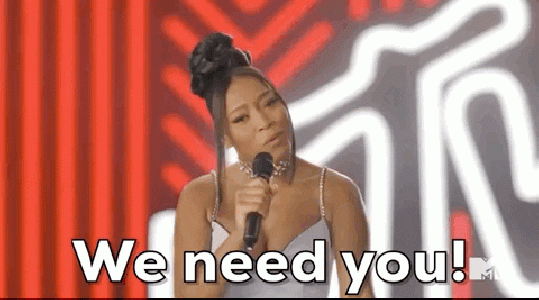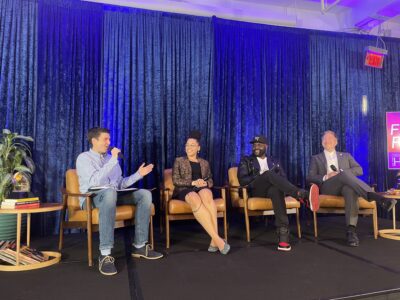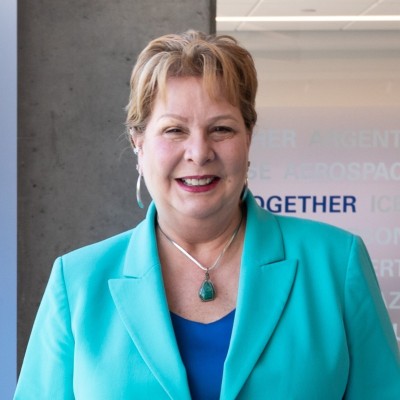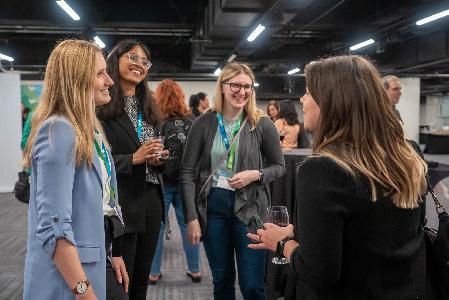When Samiria needed a new career to support herself and her nine-year-old, she took action.
She found free tech classes at Byte Back, and she signed up. When it turned out classes were in Washington, D.C., an hour from her home in Baltimore, she didn’t waiver. It was a long commute. But she was gaining tech skills – the foundation of a new career.
This Digital Inclusion Week 2019, digital equity organizations all over the country are taking action, too, hosting trainings, signing people up for affordable internet, and raising awareness. Now we are calling on Congress to join us and take action by passing the Digital Equity Act of 2019.
The Digital Equity Act was introduced in the Senate by Senator Patty Murray (D-WA) in April with a companion bill in the House introduced by Rep. Jerry McNerney (D-CA) just two weeks ago. It would allocate more than $1 billion dollars in federal grant funding over five years for programs to close the digital divide, including measuring internet access in rural areas, improving accessibility for individuals with disabilities, and providing digital literacy training.
This type of multi-pronged approach is the only way to create lasting solutions to the complex challenges of digital equity, which the National Digital Inclusion Alliance defines as “a condition in which all individuals and communities have the information technology capacity needed for full participation in our society, democracy and economy.”
We can see how complex the challenge is right here in D.C. Populations experiencing homelessness must overcome the barrier of internet access just to register for government programs or apply for jobs. Even residents with housing may not be able to afford home broadband – 22% of households in D.C. don’t have home internet, and that jumps to 53% of households earning less than $20,000 per year.
And then there are people like Byte Back student Samiria, who have internet access and some basic digital skills, but they never had a chance to learn the professional skills that would allow them to fully participate in the digital economy.
Similar challenges exist all over the country, and there are hundreds of organizations – public libraries, city governments, nonprofits, and more – trying to help individuals overcome them:
- EveryoneOn connects people to low-cost internet options
- PCs for People sells low-cost computers to low-income households
- Byte Back is one of the only organizations in the country where adults can start using a computer for the first time, earn industry-recognized tech certifications and move into living-wage careers that use tech.
The people who have ready access to these resources are the lucky ones. Without any local options, Samiria was willing to drive to D.C. twice a week for classes at Byte Back. When she started classes. Then this summer, thanks to a grant from TD Bank, Byte Back expanded to Baltimore, meaning Samiria could get the training she needed without the commute.
The Digital Equity Act can help organizations like Byte Back expand to serve more people in more communities with even more effective programs.
Corporations and foundations will continue to be an important part of overcoming the digital divide, but this is a challenge that we all must contribute to solving – nonprofits and NGOs; the private sector; and state, local, and federal governments. Federal funding would add multi-year stability and systemic support to this on-going effort.
By empowering digital equity organizations and individuals they serve with meaningful support, Congress has the power to connect the country – to make job applications, online training, and digital entrepreneurship available to hundreds of thousands of people left behind in the digital age. Now is the time to take action.
Show your support for digital inclusion on social media with hashtags #digitalequitynow and #digitalequityis.
Join the conversation!
Find news, events, jobs and people who share your interests on Technical.ly's open community Slack

This Week in Jobs: Get out there with 22 new job opportunities available to you!

‘The marriage of music and tech has always existed’: Music industry leaders talk promise, harm of AI

'Be bold': This digital innovation and business strategist urges fellow women leaders to be their authentic selves

